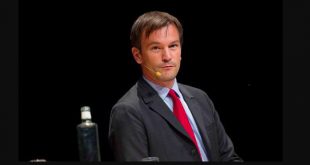
Ismail Vali, Senior Consultant for iGaming Leaders, delivers a two-part explanation about how operators in Sweden have been forced to act upon regulatory changes that are only vaguely specified but affect the day-to-day operational realities of running a sportsbook.
The lack of clarity provided by the Lotteriinspektionen has led Vali, who authored the recent Bricks vs Clicks article and a Three Acts of Gaming series focused on resort gaming, the international spread of resort gaming and the globalisation of gaming, to fear that Sweden’s new regime may actually create a black market for betting and gaming.
In part one, he will assess lessons learned from America and key aspects of the new Swedish system, before a second part in which he serves his final analysis of pre vs post regulation in the country.
No system of regulation is ever easy to introduce and implement, and for Sweden’s Lotteriinspektionen, we should gratefully recognise the significant shift and struggle the team at the agency have undertaken to plan, publish and open for applications in such a short time frame since the legislation itself.
If we, as operators, are struggling to understand and implement what the Swedish law calls for, the Lotteriinspektionen are in a similarly unenviable position, as they attempt to clarify, publicise and explain the same to us, all whilst shepherding and progressing the now near 100 applications for licences to the new era of Swedish iGaming from January 1st 2019.
To say that the Swedish Gambling Act 2018, and subsequent regulation, is clear and easy to implement would be difficult, at the least. To say that it leaves a number of areas unclear and perhaps open to future, urgent clarification and industry and stakeholder consultation is, likely, closer to the truth.
What is preferable for us all, is that any future consultation and clarification period can occur without resorting to what is recently becoming a trend phenomenon in global gaming regulation: public blame, followed by the naming and shaming of iGaming operators.
Lessons learned from America
Prohibition does not work – The Unlawful Internet Gaming Enforcement Act of 2006 (UIGEA) being signed into law on the last day of Congress time before the 2006 elections, meant a piece of gaming law was passed without anyone on the Senate-House Conference Committee seeing the language of the proposed law beforehand.
The Economist magazine noted UIGEA provisions were, in fact, passed into practical law by being “tacked on to the end of unrelated legislation” (SAFE Port Act, 2006). The day after UIGEA passed, its clear media message being that iGaming was “illegal in America”, the share prices of every traded iGaming operator and B2B supplier crashed across global public markets without mercy.
Public blame and shame has no long-term impact – This crashing of share prices led to the near wholesale withdrawal from the USA by responsible iGaming brands across Q4 2006. Yet, it did not end iGaming – nearly all of the companies negatively impacted in 2006, are now back in the hunt across a newly opening US Market, since the effective repeal of PASPA by SCOTUS in May 2018.
In short, the advantage to the player delivered by competitive iGaming is one genie you cannot put back in the bottle, especially given that the pre-internet reality for most players was one where unfair, and lacking in player value, government monopolies predominated.
Vague and unclear laws (and subsequent regulation) promote black markets – Few, if any, successful enforcement cases were ever brought under UIGEA – due to the fact it was poorly conceived, created and carried into law. What mattered was the threat matrix potential, and dragging impact upon share price, of continuing to operate in a market where the future regulated reality might be closed to responsible operators for sins committed during the prohibition blackout period.
The net effect of UIGEA, and its lag impact upon actual regulation, was simply to create an enormous black market, populated by many companies lacking in the responsible operator credentials of those who had to leave in the first flush of “prohibition fever” that greeted UIGEA’s passage.
Players do not appreciate prohibition – They will simply find other options. If a player can find a sportsbook or casino on Google, Facebook or other online platform, via Search or Ads, without even lighting up a VPN, what’s “illegal” about it? Did America cease to be one of the world’s largest iGaming markets as a result of UIGEA? Hell, no…
The new Swedish system – observations on the key features
The key message for Sweden, right now, is that a law has been passed, and the regulator is there to ensure the efficacy and correct interpretation of that legislation, in line with daily practice by a now legally defined, and permitted, pool of soon-to-be-licensed industry operators.
It is still worth highlighting the key areas that definitely require more detailed Q&A for successful future operations, and which trouble me in the absence of explicit clarification, as we approach January 1st 2019, and a new dawn for betting and gaming in Sweden.
Player protection – The duty of care concept: How would a “duty of care” work in iGaming given that every player voluntarily chooses to embrace the risk inherent to our products, and this fact lies at the fundamental heart of the player vs house and bookmaker vs bettor relationship?
As a legal concept in tort law and claims for negligence, “a duty of care” is well defined, but what is to be considered “excessive gambling” when the means and resources of any one player are unknown to the industry – nor should we enquire outside of KYC and anti-money laundering provisions, since we are not financial institutions and have no wish to become banks.
Self-exclusion – One move by a player would close their accounts with all licensed operators. There is no fundamental problem here, but there is when it comes to what the legislation is trying to achieve. If player protection is the beating drum of Swedish iGaming legislation, what about unlicensed sites, and their nexus to potential player harm?
Given that there is no monitoring, policing and enforcement regime proposed or being put into effect, at all, how will players truly and meaningfully be protected in the new regulated Swedish market?
If a desiring player closes (all) their accounts on a Monday, with licensed providers, then wishes to gamble on a Tuesday, I would suggest that the lack of an enforcement regime across the licensed and unlicensed “level playing field” will soon see that “at-risk” player being serviced by one of potentially hundreds of unlicensed, dark operators, who have not engaged with the licensing process at all.
Bonusing – I support the Swedish move to limit financial bonuses to first time players. Yes, it will create widespread account opening and promiscuity, heavily impacting brand loyalty, as players search for the incentives they have become used to and will only get from new site relationships.
We did lead to this reality by fostering a copycat culture of mimicking whatever our nearest competitor offered, and an over-reliance upon affiliates and needing to conform to their league table ranking of betting and gaming sites, ordered mainly by virtue of the largest financial incentive.
The fact that such bonuses are disbelieved by players, and we needed a way out of the corner we painted ourselves into, is without doubt – we should therefore thank the Swedes for gifting us an opportunity to become more innovative in how we gain and retain players.
Marketing – Defining advertising as needing to be “moderate” is unclear and too vague to be workable in practice. We are an innovative and pioneering business at our core, and the marketing of gaming, historically, has never conformed to the practice and habit of any other industry, given our products, perception and player relationships.
“Moderate” advertising is no clear or standard rule, and will likely result in internal censorship by compliance teams within the industry, as well as trial and error by operators followed by the inevitable public blame, name and shame fining, which achieves little change or conformity with what the legislature actually intended by this provision in the law.
Even the UK, with a somewhat complicated mix of advertising oversight overseen by the Gambling Commission, Clearcast (ad approvals) and the Advertising Standards Agency (ASA), has stumbled into an era of confusion without clear rules, uneven application across creative and brands, and a mostly reactive regime upon “public complaints” – all of which combine to the detriment of entertaining, engaging, but possibly compliant, creative across the UK gaming industry.
Asserting that advertising channels will be “open to licence holders only” is similarly fraught with issue – there will, without doubt, be many operators who remain outside of the Swedish licensing process. Of course, the “marquee marketing routes” – like television spots – will be harder to reach as few Swedish media owners will want to incur fines for accepting ads from unlicensed operators.
That depends upon the size of the financial fine, however, as we’ve seen from UIGEA. Many TV networks in America were simply offered media budgets for the availability of TV ads, such that any fine or litigation potential was simply factored into the cost they charged an unlicensed operator. Sales teams were even motivated to make such deals work given the bonuses they could accrue.


